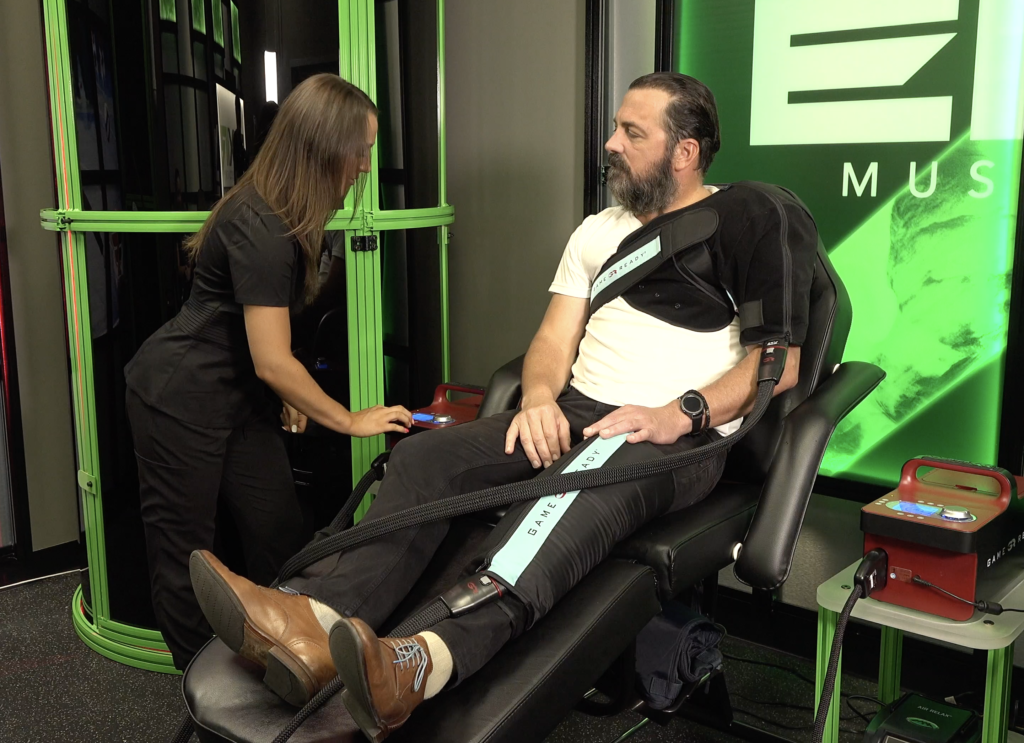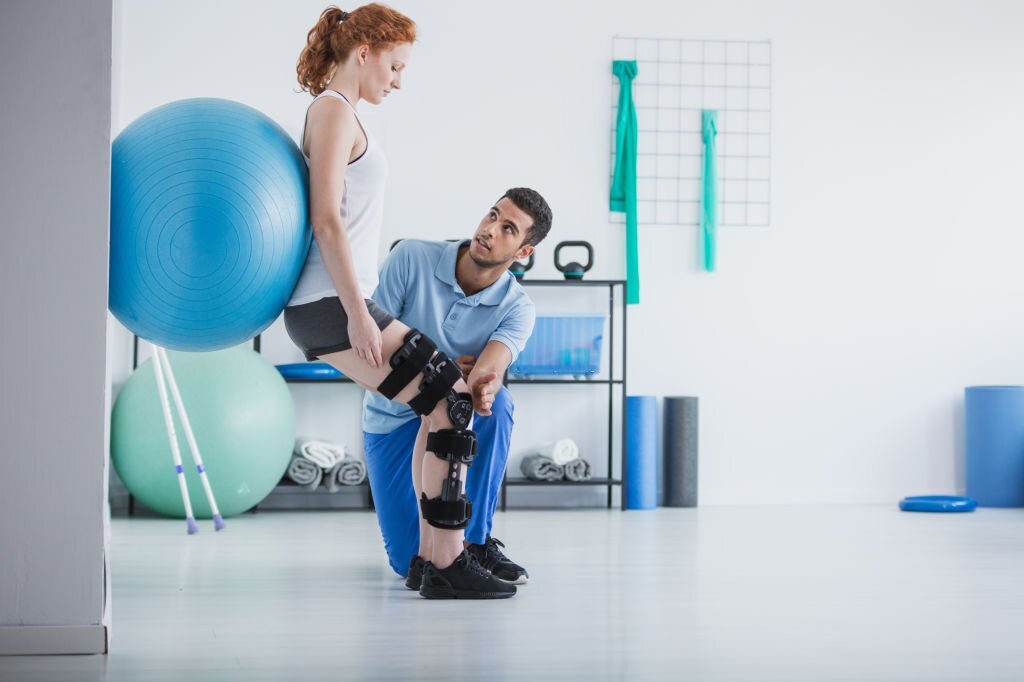Have you ever experienced satisfying muscle ache after a challenging game or physical workout? Yes? The sensation is known as muscle soreness. It happens because of your body’s natural healing capability. When it happens, you can relax, knowing that your body is working just fine.
The science behind muscle soreness is rather easy. During an intense workout or a game, your muscles work overtime. Naturally, tissues get damaged. The micro-tearing of these tissues triggers your body to heal the damaged tissues.
As a result, fluids accumulate in that area putting pressure which leads to sensation that some people call it “Sore Muscles.” It happens after 12 to 24 hours after workouts or intense “Physical” games like American football, soccer, and volleyball.
In this article, I will discuss everything the topic represents. Namely what sore muscles are and how to fix them. Hopefully, you can flush out all the misconceptions.
Why Are Your Muscles Sore After A Game?
As you already know, muscle pain is nothing but a tissue-rebuilding process. The soreness happens because of Delayed Onset Muscle Soreness (DODS). There could be several reasons behind DODS.
The first reason would be microscopic muscle damage. You can experience tears in your muscle fibers during or after a sport requiring some movement. This damage triggers an inflammatory response, leading to soreness of the muscles.
Another popular yet not primary reason behind muscle pain is lactic acid build-up.
It mainly contributes to the uneasiness during and immediately after exercise. Lactic acid is a byproduct of energy production when there’s no sufficient oxygen. It accumulates in the muscles during intense exercise, resulting in soreness.
Last but not least, due to muscle fatigue and strain. After an intense exercise session, your muscle experiences fatigue, particularly if you push beyond your usual limits. This strain can result in soreness as the muscles try to repair and recover.
But one question remains unanswered. Is it a good thing to have sore muscles all the time? Well, let’s figure it out!
Is Muscle Soreness a Good or Bad Thing?

As We said several times, muscle soreness is your body’s natural reaction toward micro tears and inflammations. Normally, it’s a good thing for your body to have sore muscles after a football, volleyball, or soccer game. However, it is not okay if the soreness camps inside your body for too long.
Contrary to popular belief, changes in muscles can show progress. When you have sore muscles after games, it means you worked hard.
It shows that you’ve pushed your muscles beyond their limits. Other than that, muscle soreness triggers a repair and adaptive response. As a result, your muscles will be stronger and more resilient than before. In short, the more soreness you feel after a workout, the bigger muscles you’re forming.
On the other hand, prolonged soreness means you’ve pushed your muscles too much and didn’t let them rest. It can increase the risk of overexertion, strain, or injury. It’s necessary to listen to your body. Overtraining the body and not giving enough rest is never a good matchup.
Severe pain from sore muscles can affect your natural ability and performance in physical games. It can limit your range of motion, decrease strength, and impact overall mobility and functionality.
How to Fix Muscle Soreness?
Honestly, there are no magical pills or something for you here. However, some practices can help you with sore forearms, thighs, calf muscles, biceps, and triceps after a well-fought game. Let’s have a look at them!
Proper Rest and Recovery Time
Tissue building takes time. You should rest up after training and the actual game. This will allow tissues some much-needed downtime. Avoid working the same muscle groups excessively on consecutive days during training. It’ll give adequate rest to your muscles to repair and rebuild into stronger and bigger ones.
Gentle Stretching Can Help
Light stretching exercises before and after a game are good workouts to eliminate muscle soreness. It helps relieve muscle tension and improve flexibility. Do some gentle stretches for the major muscle groups. 15 to 30 seconds per group without bouncing is a decent routine.
Massage Therapy Might be the Answer
Massaging your muscles helps with blood flow. Using self-massage tools like vibration massagers to target specific areas will do you a world of good. You can always opt for a professional massage therapist if you can’t do it by yourself.
Apply Heat or Cold Therapy

Heat therapy, such as a warm bath or heating pad, can help relax the muscles. It improves blood circulation. On the other hand, cold therapy, like using ice packs or a cold shower, can reduce inflammation and numb the area. It’ll temporarily alleviate pain and soreness.
Gentle Movement
Before engaging in intense exercises, doing low-impact ones is always great. It’s like a warm-up session for your muscles. Also, light workouts like walking or light cycling increase blood flow to the muscles. As a result, it helps to reduce muscle stiffness and promote recovery.
Hydration and Nutrition
Proper diet and timely hydration are a must for tissue rebuilding. Try and stay hydrated. It’s best to eat healthy. We mean a balanced diet every day. Drink a plenty of water and eat nutrient-rich particularly protein. It supports the best in muscle repair and recovery.
Gradual Progression
Always remember, building muscles is a marathon, not a sprint. You can’t expect to gain muscles overnight. For this reason, don’t overwork in the gym. Take it slow and gradually increase your intensity. It allows your muscles to adapt and minimize the risk of excessive soreness.
Do I Need to Consult With a Doctor For Sore Muscles?
In most cases, sore muscles do not require a visit to the doctor. They are a normal response to exercise and usually resolve automatically within a few days or a week. However, there are certain situations where it is advisable to consult a healthcare professional:

- The soreness, pain, or discomfort lasts for more than a week.
- You are feeling severe pain in different parts of your body.
- The pain is so unbearable that it prevents you from moving.
- The pain gets worse with more exercise.
- You feel dizzy or have trouble breathing because of the pain.
- You notice unusual symptoms and complications like redness, swelling, or warmth in the sore muscles.
- You feel pain in the joint, over the bones, or in the tendons.
- You have a pre-existing medical condition, such as cardiovascular issues, arthritis, or a musculoskeletal injury.
You should ask for professional consultation for any of the above. Otherwise, things could go wrong for you in every way possible.
That’s A Wrap!
Muscle soreness is a natural consequence of intense games, demanding workouts, or relentless physical exertions. During outdoor sports, microscopic damage and inflammation occur. Your body responds to the wear and tear by repairing them from the beginning, leading to sore muscles.
So far, we have discussed why muscles get sore and whether it’s good or bad. We also touched on how to get rid of muscle soreness pre and post-workout. Just keep these pointers in mind and seek professi help when needed. Don’t worry, you’ll be fine in time for your next game!



